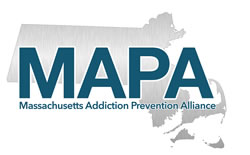MAPA is disappointed to learn that the Massachusetts Supreme Judicial Court ruled against us in the challenge to Initiative 19-14: Cumberland Farms’ effort to deregulate alcohol by having voters authorize convenience store beer and wine licenses, as well as unlimited package store licenses by a single entity in Massachusetts.
What Does the Ruling Mean?
With this ruling, the ballot initiative will be allowed to go forward in November, and voters will be deciding whether to deregulate alcohol retail and outlet density in the state. Because retail marijuana licenses are tied into alcohol retail licenses, this ballot initiative has the potential to deregulate recreational marijuana, as well.
Attorney John Scheft of Bellotti Law Group, who represented our case, accurately explains: “We know that the odds were slim that the SJC would rule in our favor on this matter. The constitutional framework behind these voter petitions results in minimal substantive review of the real costs of these ‘popular campaigns,’ which, increasingly in the modern age, are corporate-driven exercises that benefit from a deliberately uninformed electorate.
The term ‘uninformed’ isn’t a criticism. Many of these proposed laws–including this one–take trained lawyers multiple readings to understand. Voters can hardly be expected to comprehend their potential impact.”
What is at Stake?
The regulation of alcohol outlet density through license limitation has been a longstanding, highly effective and scientifically proven strategy for preventing the harmful effects of alcohol use, particularly on young people. This ballot initiative, if passed, would remove these licensing limits that have been a cornerstone of our state’s alcohol policy that protect communities from increased violence, crime and harmful health outcomes.
While Cumberland farms will likely argue that there is economic benefit to deregulation, even that has not proven true in prior cases. In Washington state, when a single company bought a ballot initiative, tax revenue from alcohol sales decreased significantly and the price of alcohol increased–to say nothing of the public health dangers of the deregulation.
For all of the reasons in our amicus brief, the Massachusetts Addiction Prevention Alliance and the Health Foundation of Central Massachusetts maintain that the deregulation of alcohol sales will affect public health in the Commonwealth for decades.
What’s Next?
MAPA will continue our campaign to keep alcohol outlet density in Massachusetts regulated. Because this issue is now in the hands of voters, our role is to educate voters and influencers on the arguments against “outlet density” described in our amicus brief. Our collective COVID-19 experience–which is often pitting the needs of corporations and the economy against public health–may serve to increase public support for prioritizing public health over alcohol retail interests. As the costs of addiction-for-profit mount, public skepticism of corporate-written ballot questions should, too.
If you’d like to help, one way to do so is to contribute to MAPA during our Match Campaign. Your donation will be matched 100% by The Josephine and Lester Hensley Foundation. Click here to donate.
